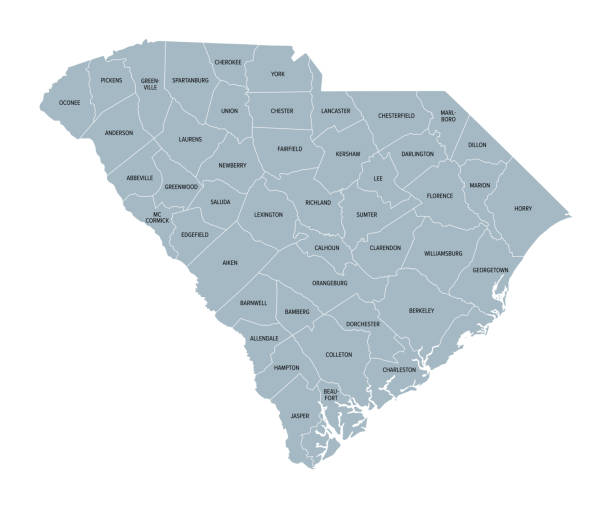Is this done in other states?
The primary function of the Center of Excellence in Addiction is to support South Carolina's counties and municipalities who are implementing their opioid abatement-funded projects. Other states offer similar services, often through abatement authorities themselves or through contracts with state universities.
There are other centers of excellence focused on addiction in the United States, but they are typically housed in and operated by a single academic institution. The S.C. Center of Excellence in Addiction is unique in that it is operated as one collaborative entity jointly owned and operated by three of the state’s foremost academic research universities and two state agencies.
How will this partnership benefit the state?
The Center of Excellence in Addiction leverages the specific expertise existing at each partnering state agency and university for centralized collaboration on addiction efforts, making statewide data analysis, technical assistance, and learning opportunities accessible to stakeholders throughout South Carolina. Combined efforts are poised to more efficiently utilize expertise and resources.
A recently published study suggests that South Carolina has at least 54,000 residents with active opioid use disorder, and approximately 13,000 of those residents received evidence-based treatment in the past year. Significant investments are being made to address the opioid crisis with federal and state funds and greater local investments by way of South Carolina’s Opioid Recovery Funds.
Ensuring that these resources for addressing the addiction epidemic are deployed as efficiently as possible requires understanding how the state is performing in identifying, treating, and retaining individuals with substance use disorders currently and over time.
Strong support at the state level is needed to spur excellence in expanding access to treatment and the prevention strategies required to prevent more deaths, particularly through expanded efforts in three areas:
- South Carolina has data on drug overdoses and mortality, yet little is known about how our systems are performing in addressing these challenges by engaging substance use disorder patients in treatment and providing adequate support. Without this information, it is not possible to assess the real-world impact of our investments in prevention and treatment.
- There is also a critical need for expanded education and training in substance use disorder treatment for physicians and other healthcare providers. Currently, the vast majority of these professionals do not screen for or treat addiction – a major barrier to expanding access to care.
- Our state needs specialized technical assistance to healthcare and social service providers delivered by experts in the field who can assist them with implementing high-quality, evidence-based interventions.
The overall purpose of the Center is to strengthen the quality of how we address addiction statewide by using data to inform how we strategically create change, and specifically support statewide scale and spreading of best practices and approaches to address the ever-evolving addiction crisis.
How will the S.C. Center of Excellence in Addiction achieve success?
Success will be guided by the efforts of five major working cores:
- An administrative core will provide cross-institutional leadership and oversight for the Center as a unified entity involving the Department of Alcohol and Other Drug Abuse Services, Department of Health and Environmental Control, Clemson University, the Medical University of South Carolina, and the University of South Carolina.
- A training core will leverage and expand successful statewide education and training in evidence-based opioid use disorder prevention and treatment to maximize spread of best practices as counties and municipalities engage in Approved Abatement Strategies.
- A technical assistance (TA) core will leverage and expand successful statewide TA initiatives and support successful, sustainable, and evidence-based implementation projects within the Approved Abatement Strategies.
- A data analytics core will use statewide data from South Carolina’s Integrated Data System to augment stakeholder needs assessments and inform timely, targeted, and data-driven clinical, educational, programmatic, and policy interventions.
- An implementation core will leverage the broad state government-academic collaboration created by the Center to efficiently develop and replicate successful implementation projects using innovative approaches to reach unserved and underserved areas of the state.
What types of metrics will be used to determine that the Center is successful?
Performance measurements exist for each of the Center’s five cores. A program evaluator will be tracking the progress of the cores with ongoing data collection and monitoring to quantify the work of the Center. Moreover, the Center’s completed state-, regional-, and county-level reports of healthcare performance along a Cascade of Care will provide necessary data for the targeted geographic and population support of strategies designed to improve population health as it relates to addiction. In sum, the Center will develop the data analytics and metrics for the state’s long-term evaluation of investments and strategies targeting addiction.
How will this Center result in actionable items that move the state forward?
The Center will offer stakeholders across South Carolina practical support with:
- Data analysis, including a baseline examination and ongoing analysis of South Carolina’s performance in serving people with opioid use disorder and other addictions. The Center will also offer training in data management, analytics, and rigorous evaluation to local programs that may not have those skill sets to support local program sites in measuring and mapping their own outcomes.
- Technical assistance (TA), including real-time and practical TA for healthcare providers and health systems, rural organizations and agencies, substance use treatment providers, law enforcement and criminal justice settings, schools, community-based and faith-based organizations, and county opioid coalitions.
- Clinical consultation, consisting of practical guidance for healthcare providers, will be delivered through a warmline that offers real-time answers to a variety of clinical questions related to treating complex patients with issues such as pain management and medical addiction treatment, as well as specialty populations like pregnant and postpartum women experiencing postpartum depression and addiction, etc.
- Education opportunities, including interactive educational series and telementoring technology, create an ongoing learning community where providers receive support and develop the skills needed to engage in specific treatments and strategies. Peer-to-peer learning on specific topics will support the spread of best practices.
- Demonstration projects will be used to pilot innovative initiatives for expanding clinical services, including model programs that have not yet been implemented.


